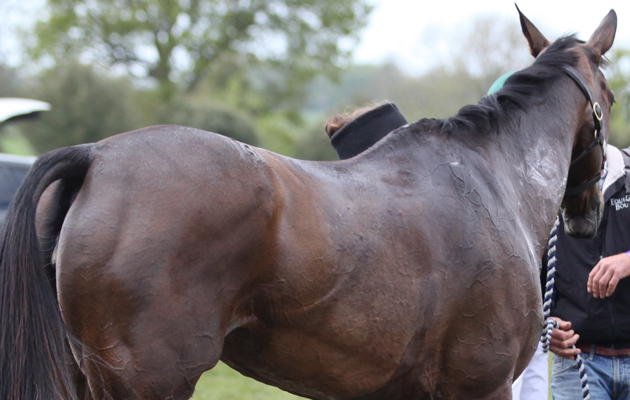Often termed the forgotten nutrient, water comprises the largest part of the horse’s body — foals are about 80% water and an adult horse about 65% water. Most of this water exists within and around the cells of the body, in the digestive tract and in the blood.
Its main function is that of a medium by which other nutrients and essentials of life are transported around the body, and a loss of 10kg (or 2%) is known to affect performance.
Exactly how much water an individual horse will drink each day is difficult to predict because this will vary according to the moisture content of the feeds eaten, workload and the climatic conditions. In conditions of high heat and humidity, water intake might increase more than four times the norm. In general, however, horses in light work at grass tend to consume more than they need on a daily basis.
In May, the grass is so lush that the water content can be more than 85% of every mouthful. A horse turned out all day and all night is capable of consuming well in excess of 60kg of fresh grass per day, approximately 50kg of which will be water.
Such a high moisture intake precipitates water excretion, which in turn could lead to increased electrolyte losses through the urine in addition to those lost in sweat. This may explain why horses at this time of year commonly increase salt lick consumption, and others appear to eat soil.
In the midsummer (when the prolonged heat-wave we are promised is due to arrive), grass growth slows and its moisture content is lower, typically 75%. Horses will receive less of their daily water requirement from grass, although it will still contribute a significantly to daily water intake.
Whatever the time of year, if a horse’s total diet is either grass or very moist haylage, the horse should have access to a salt lick or have salt or electrolytes added to the daily diet to ensure optimum health.
Typical moisture content of equine feedstuffs
| Feedstuff | % moisture |
| Hay | 14 |
| Haylage | 35 |
| Spring grass | 85 |
| Summer grass | 75 |
| Compound feeds | 14 |
| Soaked sugar beet pellets | 80 |
Horse & Hound (26 May, ’05)



